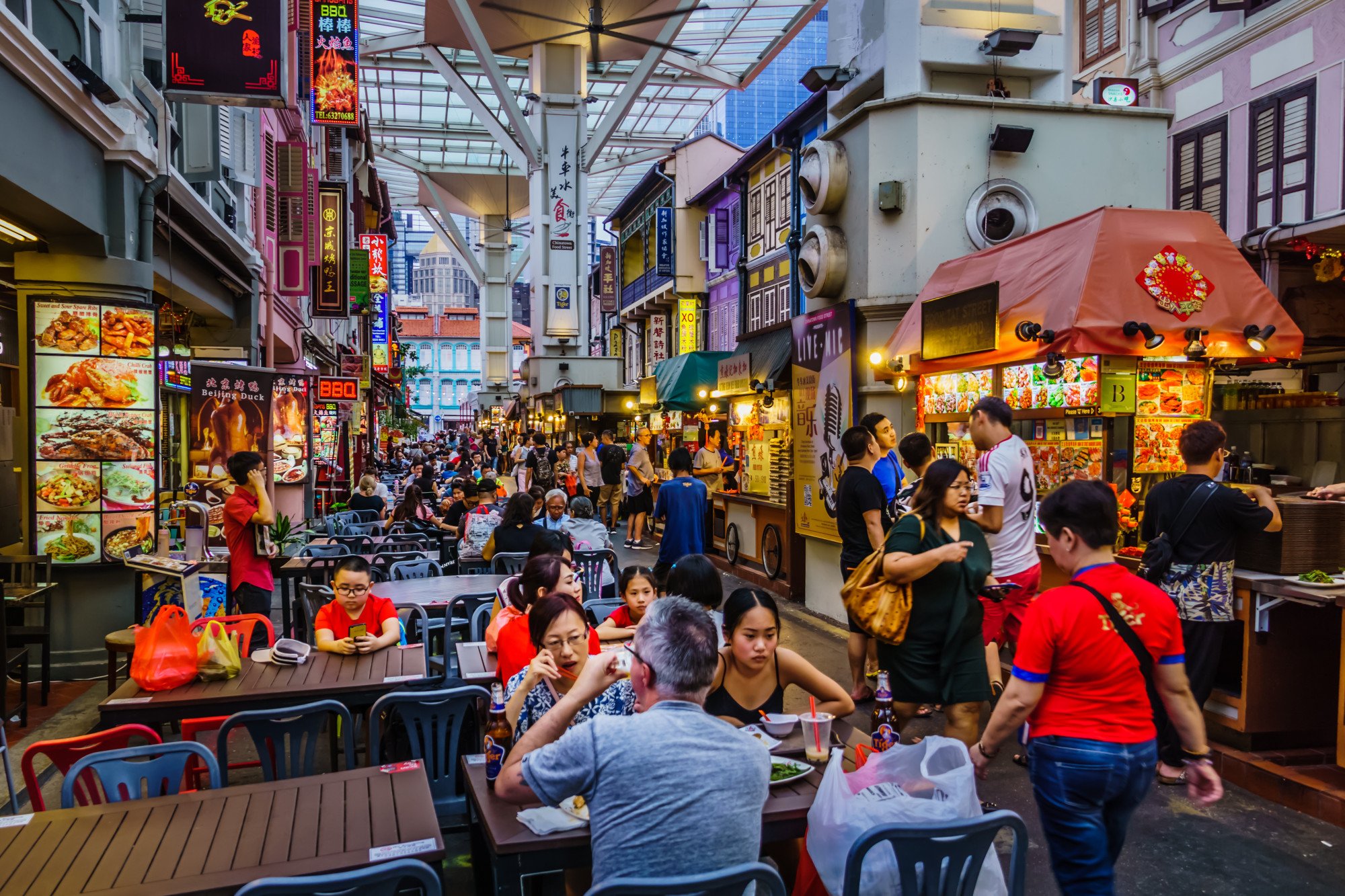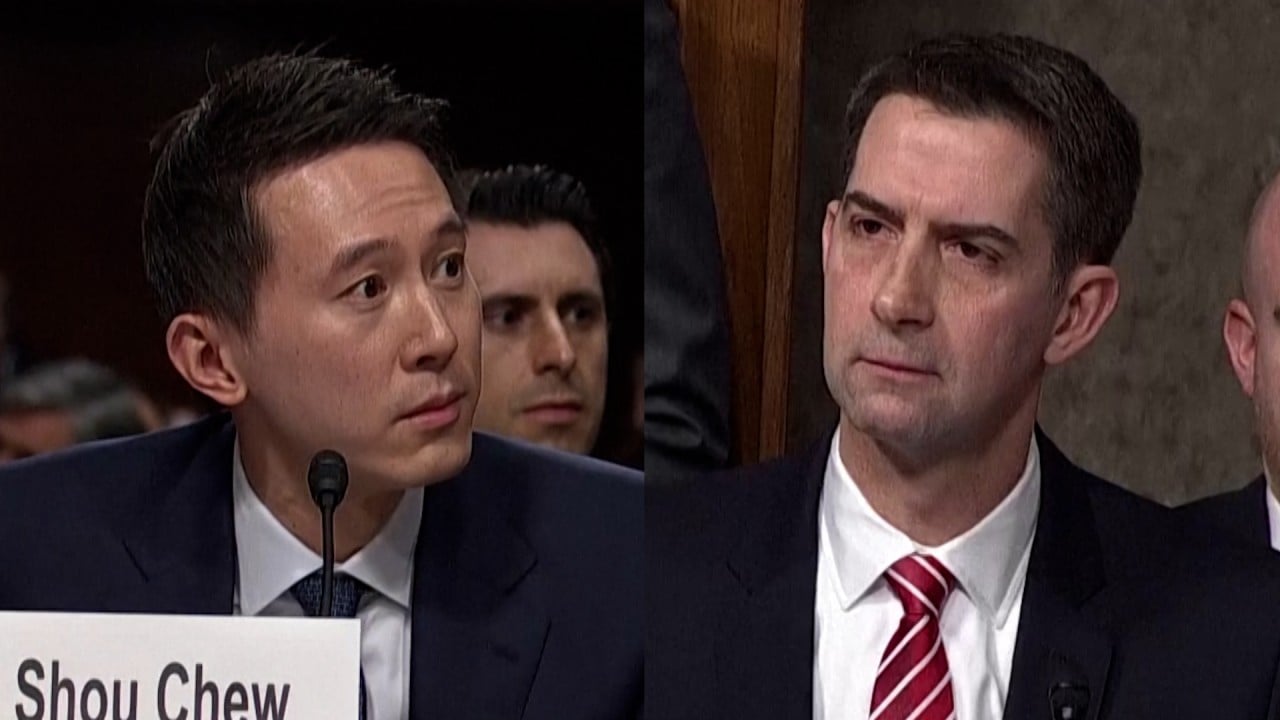
‘I’m Singaporean, not Chinese’: TikTok video sparks debate over shunning of ‘roots’
- A user believed to be from China claims in the clip that some Chinese Singaporeans were offended at being called ‘compatriot’, suggesting they had forgotten their roots
- A researcher says the conversation – and confusion – about Singapore and its Chinese ties is a long-standing one, with the saga manifesting even on an international level
A widely shared TikTok clip by a user claiming to show some Singaporeans’ distaste at being labelled Chinese has sparked an online debate on whether residents of the city state have shunned their ancestral roots, while others warn against conflating the two identities.
The user, who implied he came from China, said in the 36-second video he was shocked to discover that Singaporeans were cold on being considered “compatriots” with mainlanders, suggesting that citizens of the Chinese-majority nation might have “forgotten their culture”.
In the clip, TikTok user “The Singaporean Son” recounts how a Singaporean Chinese individual had reacted when called a “compatriot”: “Little did I know, the Singaporean’s face turned black. ‘Since when are we compatriots? I’m Singaporean, not Chinese.’ I was stunned after that. Thereafter, I stopped saying such stuff.”
One online user pointed out: “Singaporean Chinese admit they are Chinese. They just hate [for] people to think they are from China.”
“Chinese nationals travelling and visiting places no doubt created a bad image for themselves, such as: talking loudly, [having] no manners and bad habits,” another commented.
Others came to the user’s defence, arguing that Singaporeans who were ethnically Chinese did share the same ethnic ancestry as mainlanders.
The debate comes shortly after another TikTok video of a man, believed to be a Chinese tourist in Singapore, was widely circulated, showing the user criticising Singaporeans for not being able to speak Mandarin and complaining about the country’s lack of Chinese signs on trains.
That clip sparked an uproar on social media, with other users pointing out that English was the lingua franca in Singapore.
This conversation on nationality and ethnicity in Singapore is not new, according to Leong Chan-Hoong, a senior fellow for social cohesion research at the Nanyang Technological University’s S. Rajaratnam School of International Studies.
“For a long time, Singapore has been confused as being a part of China and that comes mainly from Europe and North American societies … That primarily is because the two share a significant similarity in heritage and Singapore being a majority-Chinese country, so there is that tendency to perceive it as an allegiance,” he said.

Singapore’s resident population of 4 million is made up of 74 per cent Chinese, 13 per cent Malays and 9 per cent Indians, with other groups including Eurasians accounting for the remaining 3 per cent.
The island republic is also the only country outside Northeast Asia where more than three quarters of the population is of ethnic Chinese descent. This has been a double-edged sword for Singapore, observers have noted.
Singaporean Chinese are seen to hold an advantage in language and culture when working with peers from China, though on a state level, its Chinese roots may complicate international relations with the rest of the world – an issue that has been raised in parliament.
Sim Ann, a senior minister of state in Singapore’s Ministry of Foreign Affairs, said in parliament last April that while cultural ties between Singapore’s Chinese community and Beijing had undoubtedly enriched bilateral relations, that should not be the only way to view relations between both sides.
“But to interpret Singapore-China relations from the cultural perspective may result in a skewed view, or misunderstandings. Those who are not equipped with a deep understanding of Singapore might find it hard to hoist in this point,” she said.
“Singaporeans are citizens of an independent country, but may also identify culturally with being ethnically Chinese, Malay, Indian or others. National identity and cultural identity are two different matters.”
Video clips of the exchange went viral, with Singaporeans most incensed by the way Chew was questioned on his nationality and affiliations with the Chinese government.
Senator Tom Cotton of Arkansas later defended his questioning of Chew’s ties with the CCP on Fox News: “Singapore, unfortunately, is one of the places in the world that has the highest degree of infiltration and influence by the Chinese Communist Party.”
Such cultural similarities had made it trickier for Singapore to walk the diplomatic tightrope amid US-China competition, NTU’s Leong said.
“Given that the world is becoming increasingly fragmented along geopolitical lines, it is therefore, even more important that at both government and people level, they understand that different nation states practise their distinctive set of values and have different views,” he said.
Countries working with Singapore need to know that it is a sovereign state, and “not one where we are part of a larger political alliance”, Leong added.
“Singapore’s Chinese values or heritage is also different from that of [China], because Singaporeans have a more distinctive multicultural contour and we live in Southeast Asia – a multicultural area – and it is a lot more inclusive, given to our regional exposure to different races and groups.”
Singapore established diplomatic relations with China in October 1990, only after Indonesia had done so. This was to avoid giving its Southeast Asian neighbours the false impression that Singapore was a “Third China” in the region, a perception that it has tried to distance itself from since the Cold War era.
Bilateral ties between Singapore and China normalised when Beijing opened up in the late 1970s and stopped supporting communist movements in the region.
Over the past decade, China has been Singapore’s largest trading partner and the city state has been Beijing’s largest foreign investor, according to information on Singapore’s Ministry of Foreign Affairs website.
China was the top recipient of investment from Singapore in 2021, with S$195.5 billion (US$145 billion) invested, official data showed.


